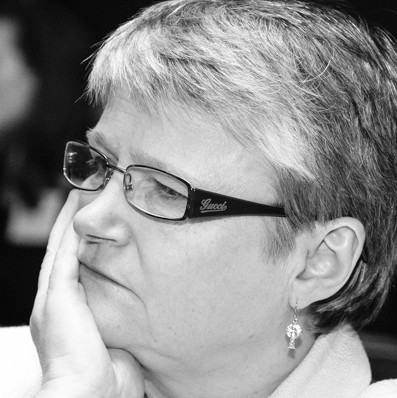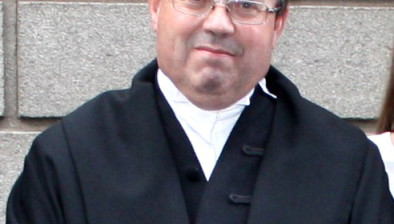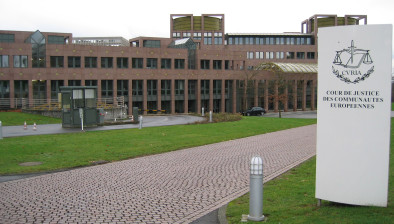‘European law? I was told there’s no future in that’: Lawyers share experiences of building a career in EU law

Anne Riley
Lawyers have shared their perspectives and experiences of building a career in EU law in an online event hosted by the Irish Society for European Law (ISEL) and the Young Bar Committee of The Bar of Ireland.
Yesterday’s joint webinar heard from Anne Riley, who recently retired as head of global antitrust at Royal Dutch Shell; solicitor Emma Lavin of Eversheds Sutherland; and barrister Oonagh O’Sullivan.
Ms Riley is an award-winning in-house antitrust lawyer and, in retirement, acts as an independent antitrust compliance consultant while continuing as a vice-chair of the International Chamber of Commerce (ICC) commission on competition and chair of the ICC task force on antitrust compliance and advocacy.
She told attendees that her first step in a career in European law was studying EU competition law. Having completed her articles of clerkship, she moved to London to work for Linklaters in the area of European law. She recalled how a partner, her principal, in her previous firm remarked “European law? There’s no future in that.” She said that “he was wrong then, and he’s even more wrong now”.
Ms Riley later worked for the mining corporation Rio Tinto, and decided to travel the world with her husband. Having chosen to live in a common law country, she joined the New Zealand law firm Bell Gully. She said that many common law and civil law jurisdictions base their competition law on EU law, and that opportunities therefore arise for European lawyers all over the world.
Many young lawyers in New Zealand and Australia “do the Big OE (Overseas experience)”, and traditionally travel to England to study and work in European law. Ms Riley taught European competition law in university there, mainly lecturing lawyers who wanted to work in the UK.
She opined that a greater opportunity for Irish lawyers arises as a result of “wretched Brexit” and that lawyers “from the antipodes” will want to come to Ireland rather than London, as she expects that the European legal scene will begin to wind down there despite protestations to the contrary.
Ms Riley noted that she did not learn another language, but recommended that those wishing to practise in European law would be wise to do so. She said that European law is a really good way to build a career, even for those who want to travel. She worked with Shell, and travelled around the world through the International Competition Network, an informal network that facilitates cooperation between competition law authorities globally.

Emma Lavin
Ms Lavin, an employment and commercial solicitor at Eversheds Sutherland, spoke about the great strides in workers rights that have been made since Ireland joined the European Community in 1973.
She recalled the marriage bar which required single women to resign from their job upon getting married and disqualified married women from applying for vacancies, which was abolished between 1973-1977, when Ireland commenced legislation which implemented the EC Equal Treatment Directive 1976.
Looking back, it was “amazing how quickly” European law provided rights and protections to Irish workers, she said. Noting EU law on maternity leave, breaks, discrimination, protection from harassment collective redundancies, she said Ireland in the EU is one of the safest places for workers, where an employer “can’t just fire them on the spot”.
She said that the EU uses its trade agreements to improve worker’s rights. On the issue of Brexit, she said to “watch that space”, opining that the EU will be interested in workers’ rights in the UK, and whether those rights will match up with rights available to workers in the EU.
Ms Lavin completed her traineeship with A&L Goodbody, where she was exposed to cases before the Workplace Relations Commission (WRC) and the Labour Court, and she spoke of the virtues of training in one of the larger firms due to an exposure to more areas of practice.
A knowledge of EU case law is essential for a career in employment law, she said. EU and employment law is a burgeoning area of practice for solicitors and in-house counsel, and Eversheds Sutherland brief many employment barristers in the WRC and Labour Court.

Oonagh O'Sullivan
Ms O’Sullivan, a practising barrister in the Law Library with a particular interest in judicial review, regulatory and European law, spoke of her experience in the Court of Justice of the European Union (CJEU). She worked as a stagiaire with Judge Eugene Regan, president of the Fifth Chamber.
She explained the timeline of the preliminary reference in EU law, and noted that the president of the CJEU has the “onerous task” of ensuring the proper functioning of the court.
The court is split into ten chambers, which are made up of three to five judges, each with an elected president. Chambers are not given any assigned areas of law, but will decide cases across competition, public procurement, social securities and other areas for “whatever cases are assigned in the calendar that day”.
One of the judges is designated the Judge-Rapporteur (reporting judge) who writes the judgment. The court processes the preliminary reference, which includes all translations (as French is the working language of the court) and observations, submissions from notice parties or intervening states.
The Rapport Préalable (preliminary report), prepared by the Judge-Rapporteur, is mandated by the procedural rules of the court. It is an “extremely privileged and confidential document” and its compilation occurs before hearing. Article 76 of the court’s procedural rules provides that, having considered a proposal from the Judge-Rapporteur and after hearing the Advocate General, the court may decide not to hold a hearing if it considers, on reading the written pleadings or observations lodged during the written part of the procedure, that it has sufficient information to give a ruling.
Under the doctrine of acte clair, if a judgment or rule of law is clear enough, then a member state has no duty to refer a question for preliminary ruling to the court. Article 99 provides that where a question referred to the court for a preliminary ruling is identical to a question on which the court has already ruled, where the reply to such a question may be clearly deduced from existing case-law or where the answer to the question referred for a preliminary ruling admits of no reasonable doubt, the court may at any time, on a proposal from the Judge-Rapporteur and after hearing the Advocate General, decide to rule by reasoned order.
At hearing, oral procedure lasts 90 minutes, and unlike in Irish courts, questions follow the submissions. The Advocate General announces when he will deliver his opinion, and then the judges draft the judgment and deliberations.
The court has the assistance of référendaire (law clerks), juriste assistante (judicial assistants) and stagiaire (trainees). Ms O’Sullivan recommended the stagiaire programme for those interested in a European law practise, whether as lawyers in member states, academics or as a first step towards a career at an EU institution through EPSO.
Before she went, Ms O’Sullivan spoke to senior colleagues at the Bar who had worked on inquiries or tribunals, or who had worked abroad for a period. She counselled those wary of taking time away from an Irish practice that it increased her knowledge, awareness and drafting skills specific to European law, which is “hugely beneficial” to her practise at the Bar.









